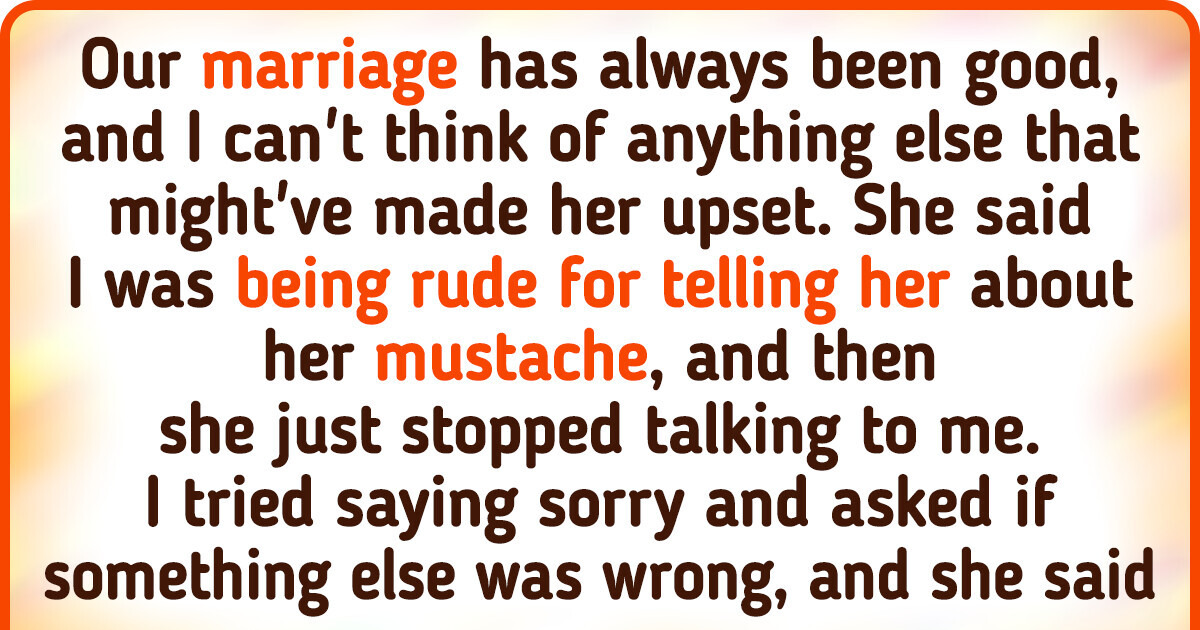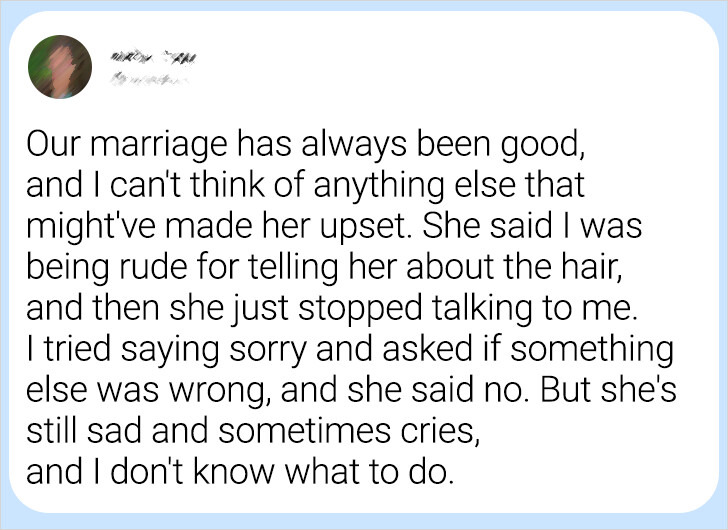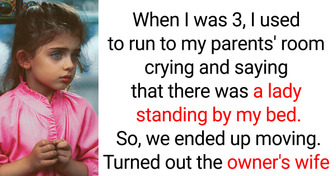13 Women Who Proved a Perfect Sense of Humor Makes the World Spin


Beauty standards often influence our perceptions, impacting how we see ourselves and others. For instance, one reader felt uncomfortable with his wife’s mustache, reflecting societal pressures for women to conform to smooth, hairless standards.
This story highlights how deeply ingrained beauty norms can shape our expectations and judgments, even within relationships. Such standards not only limit individual expression but also risk overshadowing genuine connections. Our reader’s experience underscores the harm of beauty ideals, both on self-esteem and within relationships.

His wife and he had a special understanding. Despite being naturally beautiful, she had always struggled with excess hair on her body, but she diligently removed it for him, knowing how much it meant to him. Whenever there was even a hint of hair on her face, he would gently let her know, and she would take care of it. This tradition started long ago, back in their college days. A month ago, at a party, she caught a glimpse of herself in a harshly lit mirror and noticed some hair on her upper lip.
Not too long ago, he began to notice that she had stopped removing the stray hairs above her lip. Sensing a shift in their routine, he broached the subject gently, asking if she was aware of the change. In a moment of candid vulnerability, he confessed that the sight of the visible hairs irritated him, a truth he had hesitated to share. His wife received his admission with grace and understanding. Without judgment, she promised to resume her diligent grooming habits, reaffirming their commitment to each other’s comfort and happiness.

Telling her about the hair became something they did regularly. After years, it became a routine for him to casually say, “Babe, you need a trim,” and they’d share a laugh before she took care of it. But a week ago, when he mentioned it again, things took an unexpected turn. Instead of laughing it off like usual, she burst into tears. She told him he was being rude by pointing it out.
This left him feeling puzzled and worried. He tried talking to her, even apologizing, but she remained upset. He couldn’t understand what had changed. It was frustrating not knowing what he had done wrong. They had been doing this for nearly 15 years, and there were times when she had been mad at him for forgetting to mention the hair. But this time, it felt different, and he couldn’t shake the feeling of unease.
Women, collectively, harbor a secret burden. It’s a matter so deeply shrouded in shame that many keep it concealed from both friends and partners. The struggle is often so consuming that considerable time and resources are devoted to masking it. According to a 2006 study conducted in Britain, women, on average, dedicate 104 minutes per week to managing their facial hair. A significant portion of these women habitually check their facial hair in mirrors and through tactile examination.
This facial hair dilemma exacts an emotional toll. A considerable number of women feel uneasy in social settings due to it, and a staggering 75% experience heightened levels of anxiety. Despite generally reporting a satisfactory quality of life, they struggle particularly with their social interactions and relationships. It’s worth noting that having some facial hair is entirely normal for most women.
However, there are medical conditions that can exacerbate facial hair growth. The most prevalent is polycystic ovary syndrome (PCOS) which affects around 8–13% of women. Most of the time, up to 70% of these women don’t even know they have it. PCOS, a hormonal disorder, is the leading cause of excessive facial hair growth. Another contributor is idiopathic hyperandrogenemia, wherein women have elevated levels of male hormones like testosterone, accounting for an additional 6-15% of cases.
Both genders can naturally have facial hair, but societal norms often dictate whether we should remove it or not.











